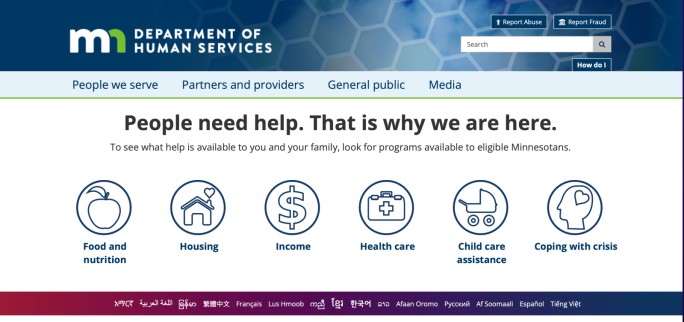What Do I Do if the Department of Human Services is Investigating Me for Maltreatment or Neglect?Dec. 27, 2022

By Melissa Heinlein, Esq.
Your licensing board is not the only Minnesota agency that may become involved in your practice. The Department of Human Services (DHS) is charged with investigating individuals in direct-contact professions who may have harmed a vulnerable person. As licensed medical professionals or others that work with vulnerable adults or children, you are likely a mandated reporter and must alert DHS of any instances of suspected maltreatment. DHS then investigates and may issue a finding of maltreatment. That finding is then cross reported to your licensing board and could result in action against your license.
Reports of maltreatment or neglect vary widely from inappropriate or sexual contact with a patient, medication errors, medication diversion, and failure to provide or document care. If substantiated by DHS, a finding of maltreatment is issued, often regardless of why the maltreatment occurred. Therefore, it is incredibly important to recognize how common these pitfalls are and to protect yourself from getting into a situation that could jeopardize patient care or your license.
Just like in a board investigation, a licensee finds out about a DHS investigation through an official letter. Receipt of the letter does not mean you must immediately discontinue working. You will be given the opportunity to tell your side of the story to the DHS investigator before a finding of maltreatment is substantiated. This initial letter will give you the contact information of the DHS investigator who has been assigned to your case. The investigator usually asks you to present for an interview, either over the phone, video call, or in person. Although you are not required to participate, this is your opportunity to provide your perception of the events for consideration by the investigator. You should consult with an attorney right away before talking with the investigator, your employer, or law enforcement. In some instances, it may be advisable to remain silent.
While preparing for the interview, an attorney can help you think critically about how to frame the events that took place and how to respond to tough questions posed by the investigator. Your attorney can be present with you for the interview and step in if a line of questioning becomes inappropriate. The information gathered in the interview becomes a part of the official record, so with or without an attorney, you must carefully consider how to present yourself.
If DHS believes they have enough evidence to substantiate a finding of maltreatment, you will receive a follow-up letter explaining their determination. You have the right to request reconsideration, but you must move quickly. The request must be submitted within 15 days of receipt of the letter.
If you have been contacted by the Minnesota Department of Human Services or your licensing board and are unsure what to do, please don't hesitate to contact me for a free consultation at 612-333-5673. At Lord + Heinlein, we are your powerful legal voice.
